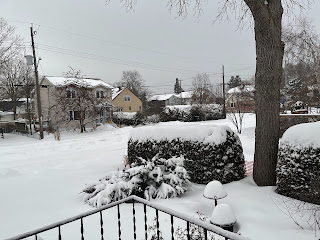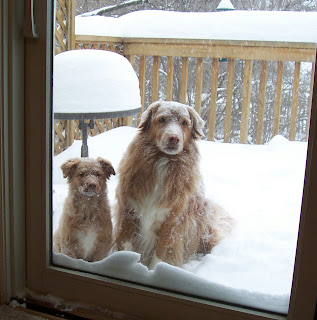When does being creative become a job?
I'm presuming that everyone who dips into these pages is either actively involved or actively interested in the process of stringing words together in some semblance of order.
So when does that act of stringing words together transform from an art (hobby, pastime, wish, ambition) to a means of employment.
I don't mean the moment when you are paid for the first time. I mean at what point is the creative process deemed work like any other? In other words, it becomes merely what we do.
I've held that view for some time, probably because even before I made a living (of sorts) from writing books I was making a living (a regular one) from writing news and features. Thanks to that, I have shown open disdain for any notion of the muse alighting upon a fevered brow and, its stablemate in the big book of author's myths, writer's block.
As the late Terry Pratchett once said - and I believe I have quoted here before - writer's block was created by people in California who couldn't write. (Sorry, Californians, I think you're lovely)
That doesn't mean we can't get stuck, of course we can. Those of us who don't plan run the risk of wandering down a blind alley with our stories. But what do you do if that happens in the real world? You turn around and go back, because somewhere you have made a wrong turn. You don't stand there and wail, 'I can't go on any further. This walking business is just too hard!', then collapse on a chaise longue, your palm pressed to your forehead and sip absinthe, there always being a handy couch and some strong aniseed flavoured liquor available up a blind alley. Well, at least in Glasgow.
So, no - I don't believe in writer's block. If something's not working then fix it. We are the creators of our little world of words and we can change whatever the hell we want. If things have come to a standstill creativity-wise in whatever we are writing then it probably means we've gone wrong somewhere back along the road. And as we made that stuff up, we can remake it up.
It could also mean you are writing entirely the wrong thing. I've been there.
There's an old adage that writer's write. Authors far more successful and wiser than I (me? Who knows? I'm no English professor) often advise that writing every day, no matter what, is the way forward. It doesn't have to be good, it just has to be written, as they say. Today's nonsense is tomorrow's bestseller, with a little work and application.
And there we have another point - what is needed is such application, not inspiration. Inspiration is the initial idea. I often visualise Peter Benchley thinking something along these lines: I think I'll write a book about a great white shark terrorising an island community. And I'll call it MUNCH! Okay, maybe the title needs a little work but I will now sit down and get the damn thing written and fame and fortune will follow. Maybe I'll get to meet that young guy Steven Spielberg some day - I did so enjoy 'Duel'.
That's the inspiration, that's the muse crash-landing on the old napper - that tiny little electrical impulse in the brain that sets the creative juices flowing. After that it's down to hard work, even when you don't feel like it.
When I was in newspapers I couldn't say to my boss, 'You know what? I'm just not feeling it today. Is it okay if I don't write these stories?'
I would have been told in no uncertain terms, no doubt in some choice Anglo-Saxon, that such a position was untenable in the workplace.
The same would be said if I was a carpenter or a plumber or an electrician, all creative pursuits in their own ways.
So here's my advice in a nutshell: just as a journey is begun with a single step, so writing a book (play, short story, script) commences with one word. Then another. Then another. Don't agonise too much over them, just pile them in. If you're a planner you should know where you want the story to go. If you're a pantster - like me - you may have some semblance of an idea. It might be vague but you should have some sort of notion.
If you're lucky it will flow. If you hit a roadblock just treat it as such and either go through it, over it, round it - or back up.
Get that first draft done, ideally as quickly as possible. It might be as rough a badger's butt but at least it's down and then you can work at it. Don't listen to authors who say their first draft is always what's printed. If that is the case - and I am always sceptical - then it in no way demeans your work. Never mind what they're doing - concentrate on yourself.
Incidentally, I may appear to be lecturing. I'm not - everything I have said above is something I've said to myself many times in the past and in fact it was the very same talking to I have myself at the turn of the year.
Now.
I'm off to pile some words into my current project. I've been at it for two weeks and I've got 26,000 words done.
The problem is, to paraphrase Neil Simon, I haven't thought of a story yet.



















